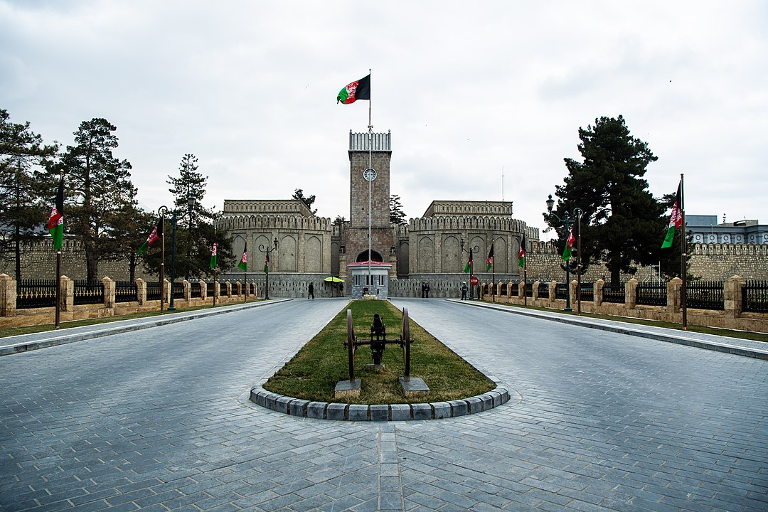Seventy-two hours after entering Kabul, the Taliban are effectively in control of all of Afghanistan. The chaotic and heart-breaking scenes at the airport stem in large part from appalling intelligence failures by the US, the British and their NATO allies, and it is difficult to see how their governments can make amends apart from providing emergency humanitarian assistance.
In the UK, there are also direct questions to be asked of Boris Johnson’s government. By last Thursday it was already clear that the Taliban were making substantial gains, but the foreign secretary stayed on holiday and Johnson took off for his own break on Saturday. In the wider international community, the UK’s standing is near rock bottom, and one suspects Johnson is not far off being a laughing stock.
What counts is what happens now in Afghanistan. But another big issue is how determined paramilitary Islamists elsewhere in the world will respond to the near-instant change of power – with the underlying fear that Afghanistan will once again be an organising centre for the likes of al-Qaeda and ISIS.
ISIS certainly has a small presence in the country and is believed responsible for some appalling attacks on religious minorities. Two months ago, a bomb attack on girls at a school for the Hazara people in Kabul killed 85 and injured 147. The Taliban denied responsibility and it did have the hallmarks of an ISIS atrocity, the two-million-strong Hazara community being Afghanistan’s largest Shia group.
According to a recent UN assessment, al-Qaeda has a much wider presence in the country. It operates across at least 15 provinces and has even been operating under Taliban protection in some key areas, including Kandahar and Helmand.
That does not mean that it will thrive under Taliban rule to the point of launching transnational attacks, for three reasons. One is that the main era of al-Qaeda transnational attacks was 2002-06, in the wake of 9/11 and the US assault it faced in Afghanistan, which inspired scores of actions against Western targets as far afield as London, Casablanca, Istanbul, Islamabad, Bali, Djakarta, Mombasa, Paris and Sinai. Now, though, the US and its allies have been defeated and expelled from Afghanistan. They are simply not the enemy they were; they are a busted flush.
Secondly, the al-Qaeda leader, Ayman al-Zawahiri, has moved the movement away from transnational attacks in the past ten years. He is reported to be very ill, but that policy may persist now that a potentially global example of an Islamist caliphate is at last taking shape.
Finally, there are signs that the Taliban movement itself may be changing. With only a few days’ experience to go on, it is far too early to draw firm conclusions. The Taliban advance has been so rapid that only now are some of the key leaders heading back to Afghanistan from Doha. One key issue is whether they seek to impose common behaviour standards on all the main Taliban elements across the country, or even whether they can – and then whether there will be some degree of moderation compared with the brutal days of the 1990s.
On the one hand, there have been ominous reports that the treatment of girls and women in some towns and cities has been typical of the old days, but elsewhere there has been a relatively more moderate approach.
Allied to this, the Taliban are already seeking international connections, with at least one UN compound in Kabul – UNICEF – reportedly open and under Taliban protection, and UNICEF operating across Afghanistan, according to Reuters:
The UN children’s agency is still delivering aid to most parts of Afghanistan after the Taliban seized control and is quite hopeful for cooperation with Taliban representatives, the UNICEF field operations chief for the country said on Tuesday.
What is already clear is that if the Taliban reach out internationally there will be some willing partners. The Pakistani armed forces, not least the Inter-Service Intelligence agency, have many links with them, and while Iran may be cautious, Russia and China are clearly ready to engage.
In recent years, Russia has held regular peace talks in Moscow involving the Taliban. They may have had little effect, but they have enabled the Kremlin to establish plenty of personal links. The Russian embassy in Kabul remains operational: Reuters has reported that some staff will go on leave, but many will remain. Moreover, Afghan government guards at the embassy were replaced without violence by Taliban guards and the embassy is in contact with senior Taliban leaders in the city.
According to France 24, China’s embassy is also still working, although some Chinese citizens have been evacuated. In any case, China was already engaged in high-level talks with the Taliban weeks before the rapid takeover.
This all points to a future Afghan government dominated if not fully controlled by the Taliban that will be cautious in allowing transnational actions from jihadist groups within its border.
But then, does the wider jihadi movement even need Afghanistan to thrive?
Across much of Africa, the Middle East, and western and southern Asia, it is a complex and varied entity, but it has a common feature of being attractive to young people with abysmal life chances, especially young men. If there are global trends likely to exacerbate these, then times will be good for all too many of these movements – and we face not one but two things likely to do just that.
One is the COVID pandemic, which is adding greatly to marginalisation, especially in those many parts of the world where global failure to vaccinate even a small proportion of populations is already causing anger and resentment.
Then we have climate breakdown, accelerating even faster than many of the more pessimistic climate scientists expected. If not curbed, a process requiring truly radical changes in economic and political behaviour, that will greatly exacerbate the risk of revolts from the margins.
Unless the elites of the world transform their understanding of security, things are going to look good for extreme movements in the 2030s and beyond, whether they stem from perverse religious identities, ethnicities, nationalisms or political ideologies.
For the Islamists at least, their role in Afghanistan will be just a minor part of a much more relevant world scene, one that is all too easy to forget with the current if inevitable concentration on Afghanistan.
Teaser photo credit: The Arg (Presidential Palace) in Kabul By U.S. Secretary of Defense – 200229-D-AP390-1529, CC BY 2.0, https://commons.wikimedia.org/w/index.php?curid=87595648





